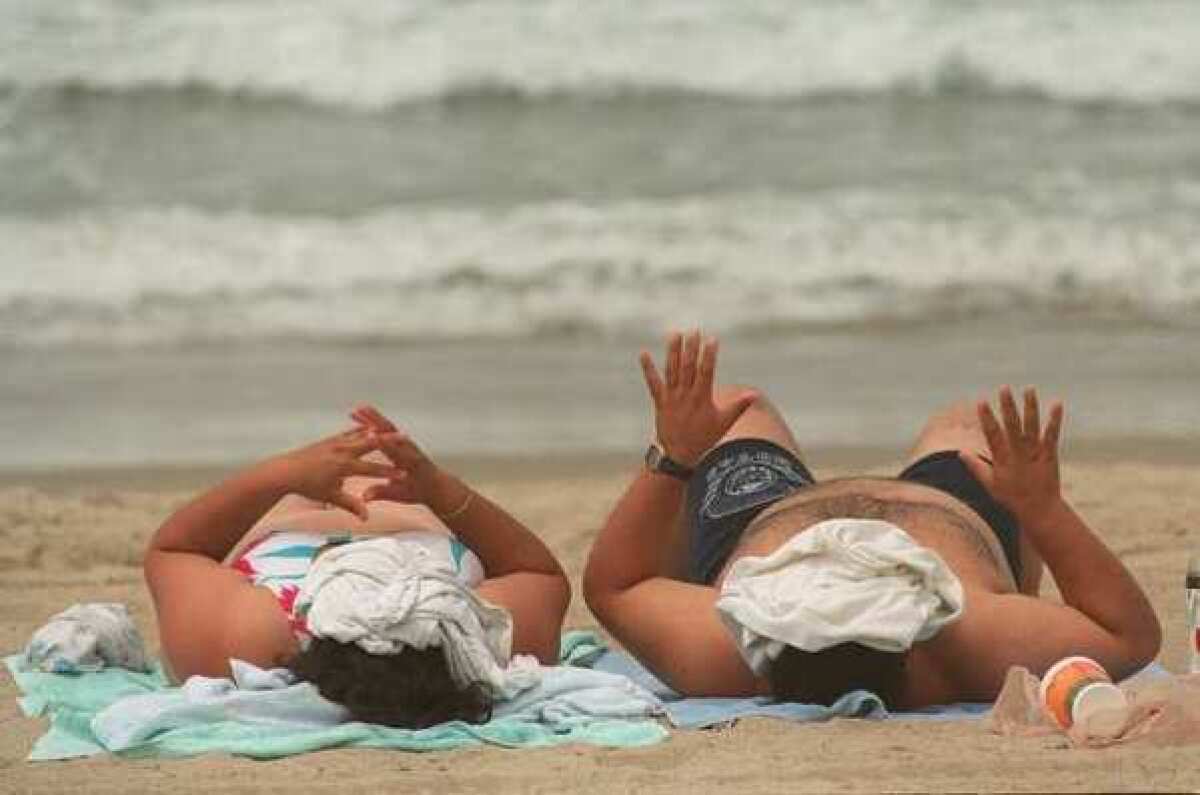Ow, sunburn: Scientists figure out what’s going on in our skin

- Share via
Sunburn is painful. What goes on in the skin when you get it, and could the cascade somehow be stopped? Should it be stopped?
A group of scientists have figured out (at least in part) why overexposure to UV light makes our skin get sore, red and swollen. Reporting in the journal Nature Medicine, they showed in a set of experiments that exposure to UV-B rays damages a tiny molecule inside skin cells -- a little piece of RNA with no known function. The damage alters that little RNA’s shape, and the sunburn cascade begins.
It goes like this:
You sit out in the sun too long. (As if you haven’t been told.)
Inside your skin cells, that little RNA molecule is damaged by UV-B -- and its shape gets altered.
Damaged skin cells release altered pieces of RNA.
The RNA, in its altered shape, can bind to a receptor in undamaged skin cells and immune cells called peripheral blood mononuclear cells.
These cells, as a result, start pumping out chemicals called cytokines that induce inflammation.
Redness and swelling follow.
That’s not the end of it, though. Even though there’s a short term ramp-up in immune activity during sunburn, later on the immune system is suppressed for a period of time.
“That is why people sometimes have flares of cold sores after excess sun exposure and why UV is used in medicine to treat inflammatory diseases like psoriasis,” explains study senior author Rich Gallo of UC San Diego in an email.
Since people who burn their skin too many times are known to be at higher risk of developing skin cancer, would it be a good idea to use this new information to suppress the inflammation reaction?
Not necessarily. The reaction might be making damaged cells -- ones that would otherwise turn cancerous -- self-destruct. “If that is true, then the inflammation after sunburn might be helping us clear away bad cells,” Gallo writes.
The findings might help refine psoriasis treatments, Gallo adds. Treating psoriasis with UV rays could be putting patients at heightened risk for skin cancer; the new knowledge could point to a way to induce immune suppression without the need for UV.
“We are actively studying both of these possibilities,” Gallo says. In the meantime, there are always hats and sunscreen.



